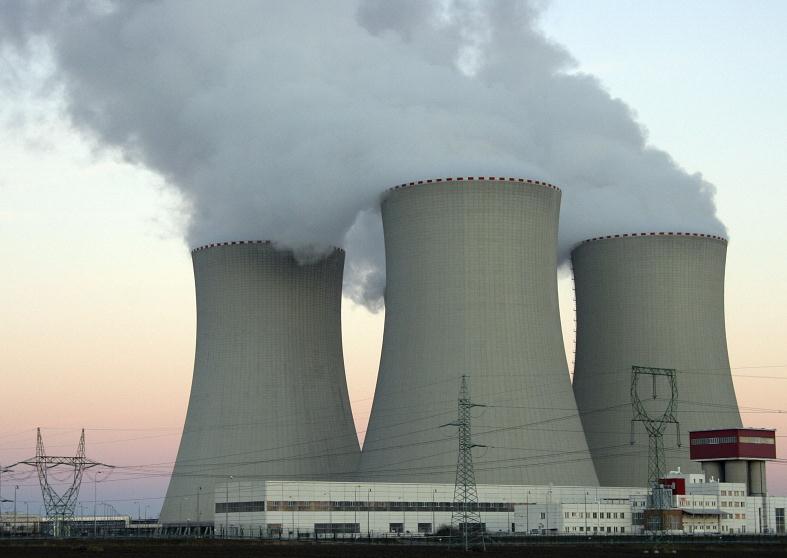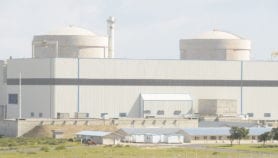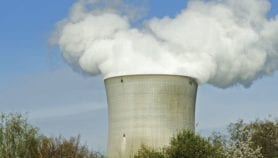By: Alex Abutu
Send to a friend
The details you provide on this page will not be used to send unsolicited email, and will not be sold to a 3rd party. See privacy policy.
[ABUJA, NIGERIA] Lack of leadership is frustrating Nigeria’s 2000 target of generating 1,000 megawatts of electricity from a nuclear plant by 2017, experts say.
Nuclear scientists and engineers helped Nigeria develop a road map in 2000 to generate nuclear energy to help address the country’s power challenges.
Seventeen years after the launch of the ambitious nuclear programme that was widely criticised by civil society groups, the government has not even acquired sites for the plants.
“There is an urgent need for political will on the part of [the current] government for the attainment of the road map.”
Turner Isoun, Nigeria’s former science and technology minister
The first nuclear plant, according to the road map, was to begin generating electricity this year.
In the road map, experts allotted 2005-2012 for personnel and infrastructure development; 2006-2008 for design certification, regulatory and licensing approvals; 2007-2015 for construction and start-up; and 2017 for hooking to the national grid to meet government’s desire of generating electricity from a nuclear power reactor.
Vincent Achibong, a nuclear engineer based in Nigeria, told SciDev.Net this month (15 February) in an exclusive interview that the set targets failed because of lack of funding, absence of competent professionals and in-fighting between the various government agencies on who has the mandate to supervise the programme.
“The various nuclear line agencies, commissions and the ministry of science and technology are fighting each other on who controls the programme and as a result we have not been able to make headway,” Achibong explains.
Turner Isoun, former Nigeria science and technology minister who initiated the programme, tells SciDev.Net: “The [successive] governments have failed to provide the needed leadership to actualise the programme. There is an urgent need for political will on the part of [the current] government for the attainment of the road map. Road maps or timeframes are estimates.”
He adds, “The programme is still alive [although] some of the estimates have outlived their timeframes. But there is still hope.”
But Nnimmo Bassey, president of Health of Mother Earth Foundation, one of the civil society organisations against the programme, tells SciDev.Net that Nigeria does not need the programme.
“Nigeria has no business with nuclear power. We should be focussed on energy production from renewable sources. Nuclear [energy] is expensive and very vulnerable considering Nigeria’s track record in maintenance of facilities,” Bassey says.
This piece was produced by SciDev.Net’s Sub-Saharan Africa English desk.
More on Nuclear
News
Africa ‘entitled to reap the benefits of atomic energy’
There must be no restrictions on African use of peaceful nuclear technology, speakers said at the continent ...11/01/07
Opinion
The pros and cons of nuclear power in the South
Last month SciDev.Net published an editorial that examined whether developing countries should be moving to ...04/08/06
Opinion
The pros and cons of nuclear power in the South
Last month SciDev.Net published an editorial that examined whether developing countries should be moving to ...04/08/06
Editorials
Should developing nations embrace nuclear energy?
A combination of factors appears to be pushing the risk-benefit balance back into nuclear's fa ...21/07/06
Editorials
Should developing nations embrace nuclear energy?
A combination of factors appears to be pushing the risk-benefit balance back into nuclear's fa ...21/07/06
Feature
Not just weapons: nuclear science for development
Over the past decade, the UN's nuclear energy regulator has helped over 90 developing countries rea ...12/04/06
Feature
Not just weapons: nuclear science for development
Over the past decade, the UN's nuclear energy regulator has helped over 90 developing countries rea ...12/04/06
Editorials
Nuclear rights and responsibilities
The developed world has no right to dictate unilaterally to developing nations how they choose ...05/08/05
Editorials
Nuclear rights and responsibilities
The developed world has no right to dictate unilaterally to developing nations how they choose ...05/08/05





